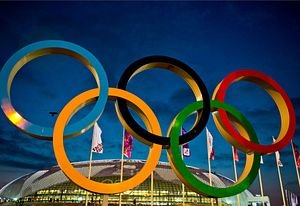Commenting upon Beijing’s successful bid for the 2022 Winter Olympics, International Ski Federation President Gian Franco Kasper quipped to a Swiss newspaper this past February that “everything is easier in dictatorships.”
Four years ago, China narrowly beat out Kazakhstan’s competing bid, and Beijing is now poised to become the first city in the world to have hosted both summer and winter Olympic Games.
But rather than allowing China to bask in Olympic fanfare, the internment of as many as 1 million ethnic Uyghurs in the western Xinjiang province has laid the groundwork for a boycott by elected leaders and athletes from the United States, and by other delegations.
If the Chinese capital was a hopeful débutante in the lead-up to its 2008 summer event, holding its head high despite complaints of media censorship, displaced Beijing residents, underage gymnasts, and air pollution, the 2022 event is likely to be billed as the glittering coronation of an ascendant and increasingly assertive China.
In 2014, on the basis of purchasing power parity, China regained its title as the world’s leading economy, a superlative it last held in 1890, and by 2016 it overtook the United States as the world’s largest manufacturer.
But in 2016, Chinese authorities commenced the forcible detention of thousands of Uyghurs and other Turkic Muslim minorities, including entire families, into so-called “political education” centers, the beginnings of an authoritarian indoctrination campaign aimed at the repression of Uyghur language, identity, and religious expression.
In the 1940s, Nazi atrocities and intentions were brought to light by the selfless heroism of individuals such as Witold Pilecki and Jan Karski, who infiltrated Auschwitz and the Warsaw ghetto, respectively. Today, we have the benefit of the Australian Strategic Policy Institute’s satellite imagery study and VICE News’ video reporting to grasp the harsh realities of Xinjiang from the comfort of our homes. And if humanity claims to have evolved morally in these past 75 years, we can’t afford to tolerate the mass internment or cultural extermination of a religious minority.
Beijing’s 2008 games were protested broadly because of China’s own dismal human rights record as well as its support to the genocidal Sudanese regime; vocal critics included actress and U.N. goodwill ambassador Mia Farrow, members of the U.S. House of Representatives, and presidential candidates Barack Obama and John McCain. But the numerous disruptions along the Olympic torch’s worldwide procession were quickly forgotten amid the spectacle of the opening ceremonies that August. Chinese authorities likely gathered from that experience that they could trample human rights and round up Uyghurs with impunity.
This year’s U.S. State Department report on global religious freedom includes an additional special section on Xinjiang, and last month Secretary of State Mike Pompeo declared China’s treatment of Uyghurs the “stain of the century.” But merely documenting the situation or lambasting those responsible is insufficient. Likewise, proposals to place export controls on surveillance technology or levy Global Magnitsky Act sanctions are unlikely to compel a change in course.
Yet the U.S. Commission on International Religious Freedom recommendations regarding China fail to consider backing out of the 2022 Olympics.
A coordinated international boycott would make the 2022 Olympics an embarrassing flop for Beijing, like a self-congratulatory dinner banquet in which half the seats remain conspicuously empty, rather than a glamorous showcase of China’s prosperity and purported inclusiveness. And such a declaration would be consistent with the 1980 Moscow boycott in protest of the Soviet invasion of Afghanistan – once again, a Communist government has moved to subjugate a Muslim population in central Asia.
Xinjiang’s Uyghurs are victims of the largest mass incarceration of a minority in the world today. With Olympic officials literally counting down the days until the 2022 opening ceremony, President Donald Trump and the United States Olympic Committee should jointly announce that the American delegation will boycott the Beijing Winter Olympics unless Xinjiang’s internment camps are shuttered and subsequently demolished. The International Panel of Parliamentarians for Freedom of Religion or Belief, a worldwide network of legislators that first convened five years ago, is ideally suited to generate discourse and media attention in their own respective capital cities, and to advocate that Article 18 of the Universal Declaration of Human Rights take precedence over podiums and medals. And in the echo of Christchurch, there could be no better way for New Zealand and Australia to demonstrate our collective conviction that religious practitioners should be able to assemble, study, and pray without fear.
Two days before the Tiananmen Square crackdown in 1989, an exasperated Deng Xiaoping grumbled to his inner circle that “some Western countries use things like ‘human rights,’ or like saying the socialist system is irrational or illegal, to criticize us, but what they’re really after is our sovereignty.” Actually, what the global community is truly after is ensuring we never again repeat the inhumanity of decades past.
Evan Karlik is a lieutenant commander in the U.S. Navy. He spent his early childhood in Western Samoa and the Philippines, and was stationed in Hawaii from 2011 to 2014. He served last year as a Defense Fellow in the U.S. House of Representatives. The views expressed herein are solely his own and are in no way intended to reflect the official position of the U.S. Department of Defense or the U.S. government.

































